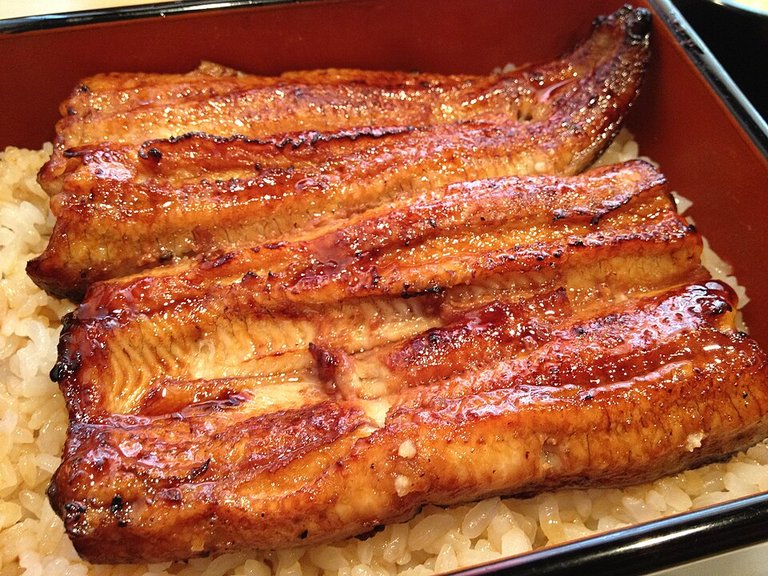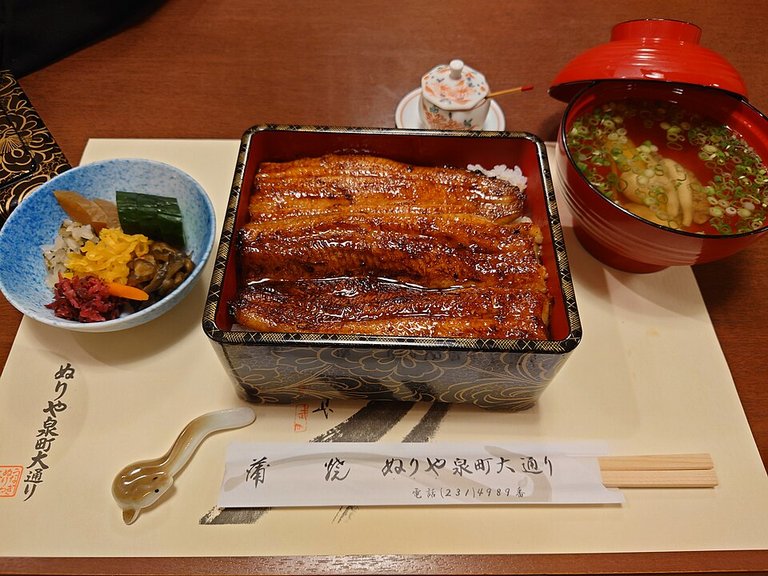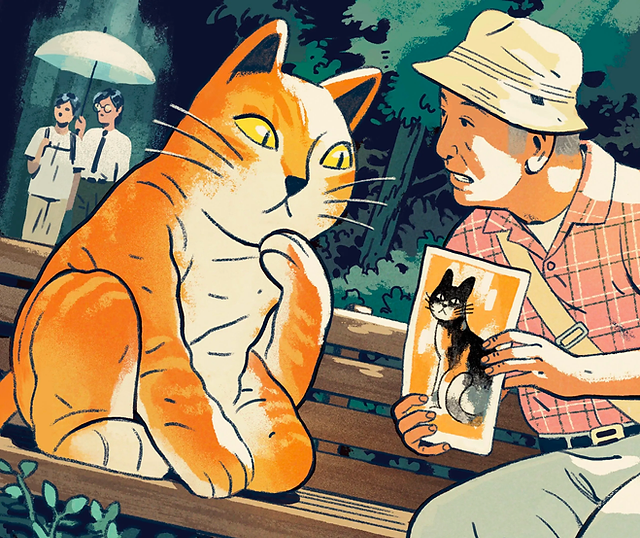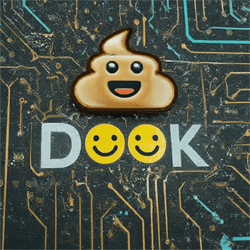Summer in Japan is rough. I know, it's rough everywhere. In Japan the combination of high heat and terrible humidity make it especially rough. Summers are always hot here, but the past few years it has ranged around 35-40°C (95–104°F) for the entire summer while the average humidity is 76%. This makes a sauna-like environment where as soon as you step outside of air condition, you are instantly covered with sweat that then just sticks to you.
Too many days like this in a row makes us tired and lethargic. The Japanese call this natsubate (夏ばて), "summer fatigue". From what I understand it is actually a somewhat serious condition, a precursor to heat stroke, which unfortunately has been becoming more and more common the past few years in Japan, but in daily use we often use it more casually to describe when you are just tired of being hot all the time and don't have energy to do anything.
There are a few traditional things to help with it. Watermelon, shaved ice (the Japanese shaved ice is so much better than what we call shaved ice in America), cool noodle dishes, various other things that cool down and/or hydrate the body. One of my favorite is eating unagi, "freshwater eel". Which... doesn't seem like it would cool down or hydrate the body, but yet it is considered one of the best foods for summer. Why?

via Wikipedia
For centuries, unagi has been considered the secret to surviving natsubate. As I understand it, this is mostly due to clever advertising during the Edo period (1603-1868). At the time, eel was considered a winter dish, which makes a bit more sense. But in an attempt to drum up summer business, one unagi shop owner started advertising that the best foods to eat during Ushi no Hi were foods that start with u. And unagi starts with u, making it the perfect food to eat for health! Brilliant!
Let's explain that Ushi no Hi thing.
By itself Ushi no Hi (丑の日) is the day of the ox, one of the 12 animals of the zodiac. Most of you are familiar with the animal years, but the system does go beyond that. Months are assigned to a certain animal, as well as days, and even hours.
The specific Ushi no Hi that this unagi shop owner was targeting was Doyo no Ushi no Hi (土用丑の日). Doyo refers to the 18 days before the beginning of a new season, but unless other context is given, often Doyo by itself refers to the summer Doyo, which corresponds to the dog days, the hottest part of summer. And during this time period Ushi no Hi usually falls somewhere in the period of July 18th to August 8th. Then with the context of summer we can easily shorten Doyo no Ushi no Hi to just Ushi no Hi and everyone knows what we are talking about.
So back to this Edo period Mad Men. He suggested unagi was the best u food to eat on Ushi no Hi and advertised all the health benefits it would bring, including beating natsubate. His ad campaign was an incredible success, spread like wildfire, and even today Japanese supermarkets and restaurants still make the same claims.

via Wikipedia
When places make the claim today they are more appealing to tradition than scientific fact, but there is some science basis for the claim. Unagi has protein, omega-3, vitamin E and A, calcium, and phosphorus. The omega-3 alone is said to improve blood pressure, lower cholesterol, maintain bone health, and for women relieve menstrual pain. Other health benefits suggested by the food are lower risk of some cancers and improved blood flow to the brain which may reduce the chance of dementia.
A pretty healthy food. While it may not exactly work to directly help the body get over summer heat, it's not a huge stretch to say it may help increase energy, which does seem like something that would help with natsubate. That combined with the great taste is probably why this remains such a strong tradition.

Unfortunately unagi has been overfished and is becoming rarer. The naturally caught domestic stuff costs more than most average people can afford. There is cheap farmed unagi from China, but this has a terrible and unhealthy image so most people do their best to avoid it.
Anyway, so if you feel like you have natsubate, unagi may just be the answer for you—if you can find and afford it, anyway.
❦
 |
David LaSpina is an American photographer and translator lost in Japan, trying to capture the beauty of this country one photo at a time and searching for the perfect haiku. He blogs here and at laspina.org. Write him on Twitter or Mastodon. |
 )
)



